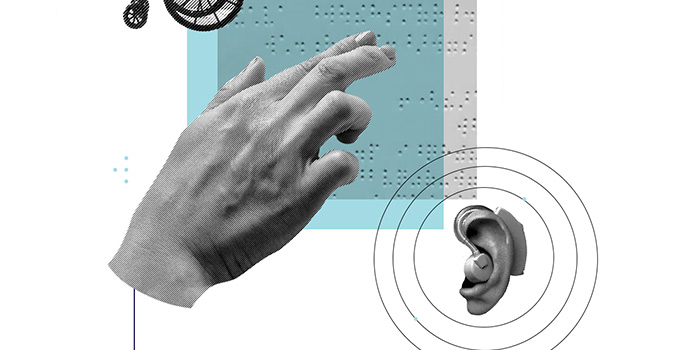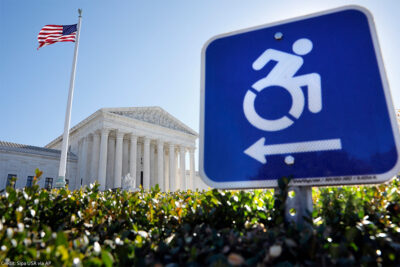
Acheson Hotels, LLC v. Deborah Laufer
What's at Stake
Whether a ‚Äútester‚ÄĚ has standing to challenge a place of public accommodation‚Äôs illegal failure to provide disability accessibility information on its website, even if she does not intend to visit that place of public accommodation.
Summary
The Ő“◊” ”∆Ķjoined the Legal Defense Fund and seven other civil rights organizations in a friend-of-the-court brief urging the Supreme Court to uphold ‚Äútester‚ÄĚ standing as a critical method for enforcing civil rights laws.
The case involves Deborah Laufer, a woman from Florida who uses a wheelchair and has a visual impairment. As a civil rights ‚Äútester,‚ÄĚ she reviews hotel websites looking for violations of the Americans with Disabilities Act, which requires that hotels disclose sufficient detail about accessibility so that people with disabilities can know whether they can safely use them. This includes, for example, whether a person in a wheelchair can get in the door to the hotel or the room, and whether the room has an accessible bathroom.
Laufer sued Acheson Hotels, which operates a small hotel in Maine, after finding that the hotel‚Äôs website did not include the legally required information. Acheson Hotels argues that Laufer lacks standing to sue because she was only a ‚Äútester,‚ÄĚ and had no intention of visiting the hotel. A federal district court agreed, but the decision was reversed by the First Circuit.
The amicus brief argues that civil rights testers suffer the same dignitary harm as any other victim of discrimination and that such dignitary harm has long been recognized as a sufficient injury to provide standing to sue.
On December 5, 2023, the Court unanimously agreed that the case was moot because Deborah Laufer had voluntarily dismissed her lawsuit in the lower court.
Legal Documents
-
08/09/2023
Amicus Brief
Date Filed: 08/09/2023
Court: Supreme Court (U.S.)
Press Releases
Supreme Court Amicus Brief Supports ADA Tester’s Legal Challenge to Hotel Inaccessibility
